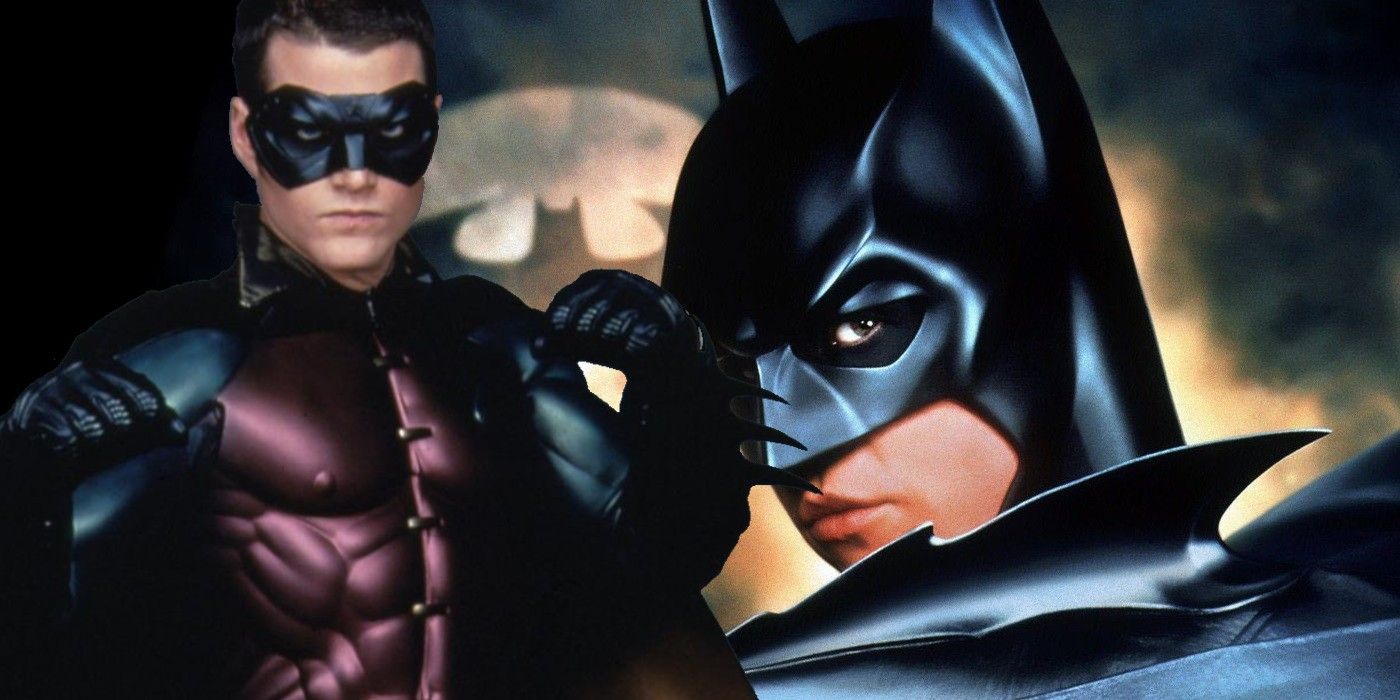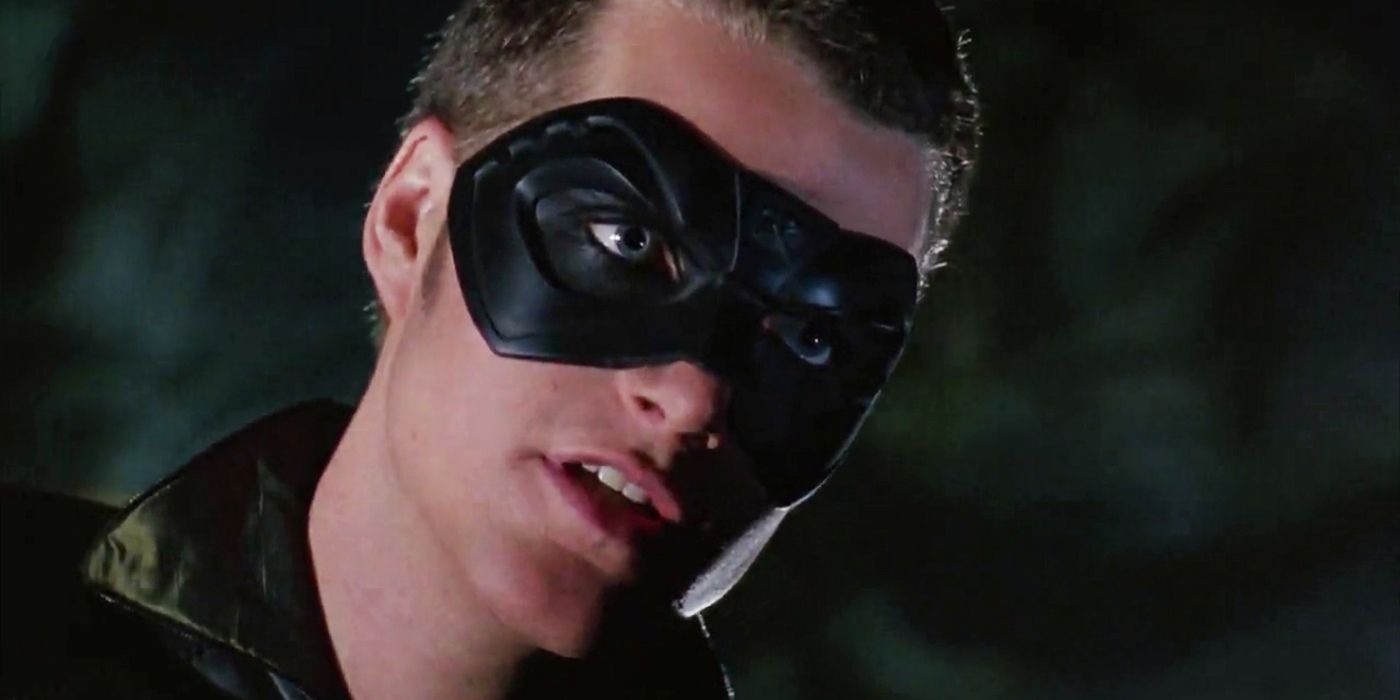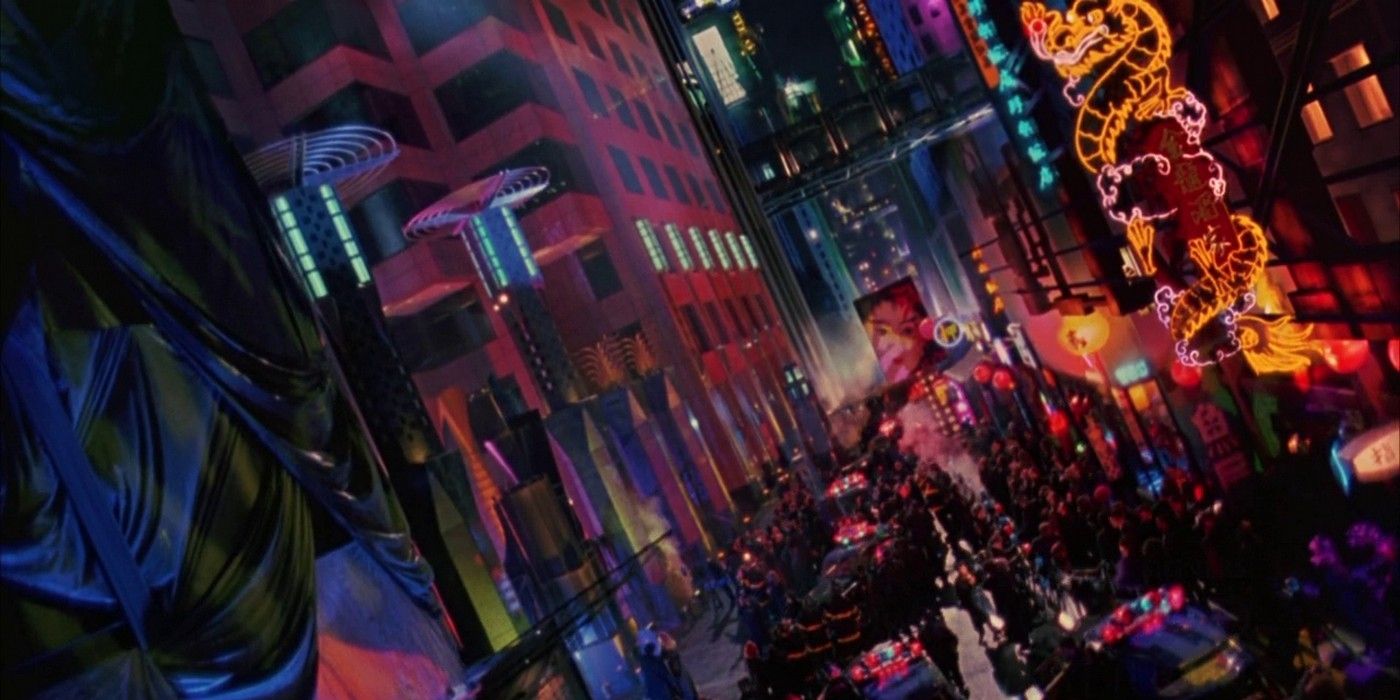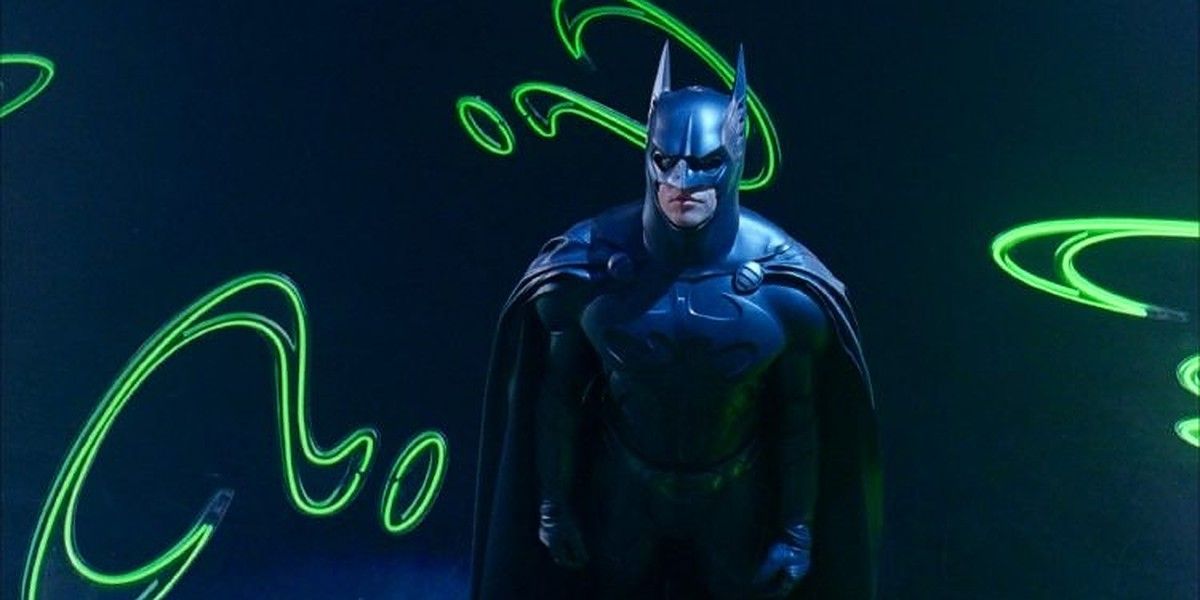
Batman Forever is the Dark Knight's most underrated movie and deserves more credit, despite not being among Bruce Wayne's strongest big screen outings. June 2020 marks the sad passing of renowned filmmaker Joel Schumacher, who will be remembered for The Lost Boys, Falling Down, and various other quintessential movies of the 1980s and 1990s. For better or worse, Schumacher is also famous for a key chapter in the cinematic career of Batman, directing 1995's Batman Forever and 1997's Batman & Robin.
Generally speaking, neither entry is well-loved by the DC faithful. Replacing Tim Burton, Schumacher's appointment ushered in a new era - brighter, tongue-in-cheek, and an entire multiverse away from the gothic stylings of Burton. Fans didn't necessarily appreciate such a dramatic departure and Michael Keaton left his role as Bruce Wayne after reading the initial Batman Forever script and disagreeing with Schumacher's creative direction.
Two years later, Batman & Robin would, in the words of George Clooney, "kill the franchise" and few would be willing to go to bat for Schumacher's second jaunt in Gotham City. However, detractors often lump Schumacher's Batman films together into one best-forgotten period of Bat-history. Batman Forever may not be the Dark Knight's most impressive outing - it may not even be a "good" movie - but Batman Forever has enough redeeming features and unique elements to differentiate it from Batman & Robin and be considered a worthy entry in Batman's movie canon.

Batman Forever rubs fans of Burton's brooding moodiness the wrong way within the opening few seconds. "I'll get drive-thru" and, oh good lord, yes those are nipples on the Bat suit. Hardly an encouraging start. Beyond the cheesy one-liners and unnecessarily detailed costume, Val Kilmer's Bruce Wayne lacks charm and his Batman lacks edge, resulting in one of the actor's less auspicious performances. Jim Carrey plays Jim Carrey, Two-Face is essentially a regular criminal in heavy makeup and the less said about Chase Meridian, the better. Where Tim Burton explored both the Bruce Wayne and Batman sides of the DC superhero, Batman Forever settles for spectacle and bombast - bright lights, loud noises and that unmistakable (and quickly-dated) 1990s "cool" factor.
That's largely how Batman Forever is remembered in the modern era and, in truth, is mostly fair criticism. Over the years, however, those negative aspects have eclipsed the spots of quality. As goofy and wacky as Jim Carrey's Riddler performance is, the villain comes with an often overlooked sinister side. In the opening act, Nygma ties his troublesome boss to a chair and gleefully pushes him out of the window - a darkly comedic death that disproves the idea that Schumacher removed all of Burton's darkness. Riddler also begins leaving Bruce a series of intricately assembled clues, leaning into Batman's investigative side more than Batman Forever's reputation as a mindless action movie would suggest. It's nothing worthy of Sherlock Holmes, admittedly, and the emphasis is still very much on punching and kicking people, but the intention is there at least.
And then there's Kilmer's Batman, often labelled as emotionless and devoid of the complexities Michael Keaton brought to the character. Certainly, Kilmer lacks the angry intensity of Christian Bale and isn't as emotionally conflicted as Keaton's Bruce Wayne, but there is a hidden depth to the Caped Crusader in Batman Forever. Throughout the story, Bruce explores his recurring nightmares and childhood trauma with the help of an attractive therapist. It's simplistic, Hollywood psychology in every respect, but it does make Batman vulnerable, fallible, and more interesting than most give this incarnation credit for. Batman Forever's dip into Bruce's psyche is damaged by two things: deleted scenes that would've added more context and trying to get in bed with his therapist, a dynamic that awkwardly melds dark backstory with a steamy affair.

Robin gets a bad rap in the Batman movies - so much so, he hasn't properly appeared since 1997. Some comic fans already viewed Robin as a character who usually took Batman into lighter, more campy territory but Chris O'Donnell's Boy Wonder was especially controversial for being much older than his character. Dick Grayson doesn't always cover himself in glory in Batman Forever; the "holy rusted metal" line is a cringe-worthy throwback and there's nothing interesting about watching a man do laundry with his feet. Despite these flaws, Robin still provides Batman Forever with some of its best moments.
Robin's origin story is arguably the most effective sequence in Batman Forever. The circus setting looks fantastic and there's genuine tension as the flying Graysons trapeze to their doom - paid off by the emotion as Dick looks down on his fallen family. The Graysons' deaths are neatly tied into Two-Face, with the entire family attempting to save the lives of the circus attendees by using their acrobatic skills to foil a bomb plot. This daring attempt makes Grayson a hero even before his transformation into Robin. The circus sequence is also one of the few occasions where Kilmer's stoic performance hits the right note - desperately shouting "I'm Batman" over a panicking crowd and silently understanding Dick's newfound loneliness both resonate strongly to give Robin a memorable live-action origin.
In many ways, Batman Forever is more Dick's story than it is Bruce's. The newly-orphaned circus performer seeks revenge for the deaths of his family members, earns Bruce's trust as a sidekick and finds a new purpose to life after leaving the circus behind. It's a simple journey, but Dick's choice to spare Harvey Dent and resist the temptation of revenge proves that Batman can leave a legacy through his teachings - something that you don't get from films where the Dark Knight insists on working alone.

Schumacher's vision of a glowing, neon-drenched Gotham City was divisive after Tim Burton's The Nightmare Before Christmas meets steampunk vibe for Batman Forever. Undoubtedly, there are scenes where the rave culture feels overwhelming, especially considering Batman's reputation as a creature of darkness, and many attribute the scenery overhaul to Schumacher's family-friendly remit - lighter visuals, lighter script. Regardless, Batman Forever's aesthetic can be incredibly effective when isolated from the sillier script and awful one-liners.
Combining the smoky rock 'n' roll imagery of The Lost Boys with the opulence of Gotham City and the cartoonish aspects of the DC comics, Schumacher's Batman world takes on a life of its own, albeit a very different one compared to the Burton era. The extravagant statues and looming structures feel grandiose and the bright green that accompanies the Riddler is menacing and oppressive. The neon-painted street tribe Dick Grayson fends off may not be traditional Gotham City hoodlums, but they do create the same sense of lawlessness and gang warfare, perhaps more appropriate for an alternate Gotham City from somewhere else in the multiverse. Schumacher's Gotham City could never be described as feeling realistic or relatable, but it does feel vibrant and exciting - a world of roaring flames and larger than life characters. The design is often compared unfavorably with Tim Burton's, but where the original director created a bleak, graveyard dystopia, Schumacher's Mad Max meets Blade Runner palette has merits of its own.

After Tim Burton's Batman Returns got Warner Bros. in hot water for upsetting younger viewers, the studio were looking for a more wholesome approach from Schumacher, and in that regard, Batman Forever is a huge success. As an adult, it's hard to argue with a straight face that Schumacher's 1995 effort stands up to anything from Nolan or Burton, but most of what critics accuse Batman Forever of lacking wouldn't usually be expected from a film geared towards a younger audience anyway. Young Batman fans don't necessarily want an in-depth analysis of Bruce Wayne's mental state, nor do they want villains who feel grounded in reality. The family friendly audience are looking for action, a little romance, the good guys overcoming the odds, puns and quips. DC fans might be justified in labeling this as "Batman lite" but it's difficult to blame Schumacher for achieving exactly what he was hired to do.
Batman Forever is so often insulted in the same breath as Batman & Robin, but the former's appeal to a younger audience differentiates the two. Batman & Robin was roundly criticized upon release and has only deteriorated with age. Very few harbor fond memories of Bane, George Clooney or Alicia Silverstone's Batgirl. By contrast, Batman Forever still retains a beloved place in the hearts of many, despite its many flaws. For an entire generation, Batman Forever was the first Dark Knight movie they were old enough to see in theaters, and there's a certain nostalgic appeal that lingers even in 2020 thanks to the 1990s kids who were enraptured by Joel Schumacher's Batman 25 years ago. Subsequent viewings might not be quite so enjoyable, but if you can look past Batman telling Chase Meridian "chicks dig the car," Batman Forever still has plenty to offer.
from ScreenRant - Feed https://ift.tt/2Yqmboo


0 Comments